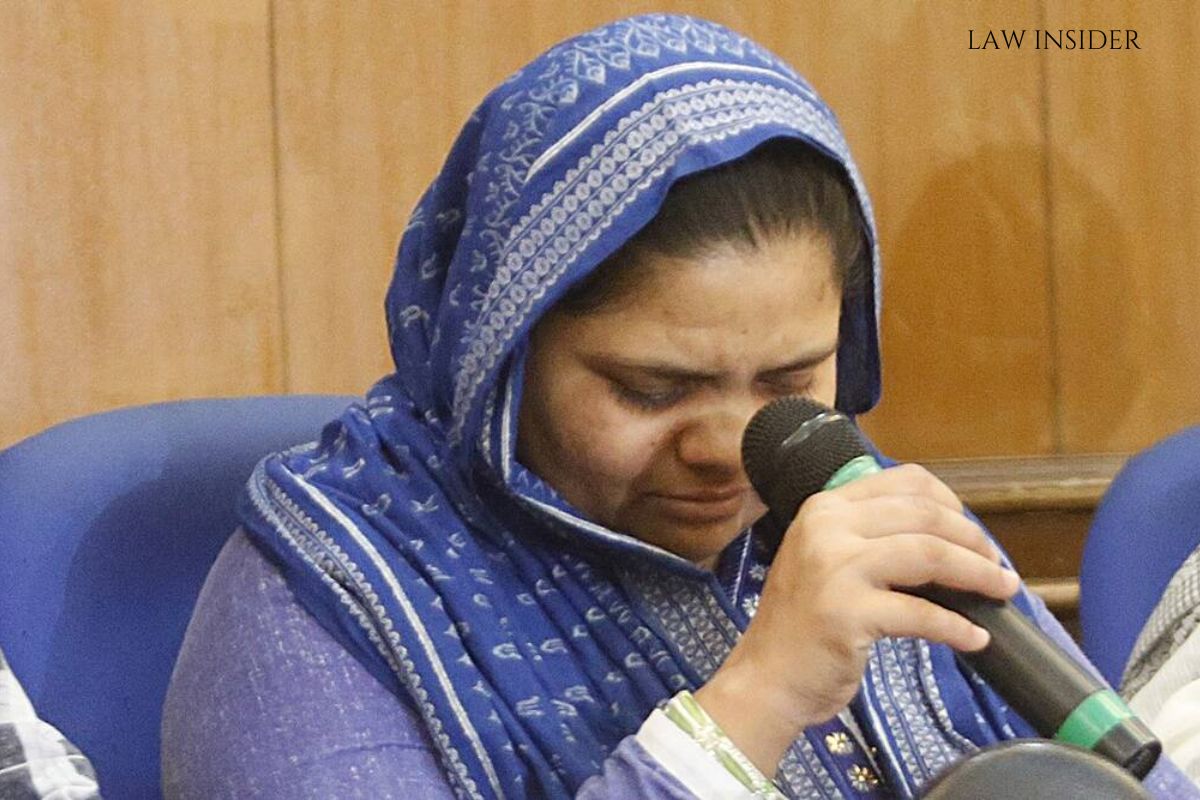LI Network
Published on: 17 December 2022 at 19:15 IST
Supreme Court has dismissed a review petition filed by Bilkis Yakub Rasool Aka Bilkis Bano against early release of 11 rapists
Bilkis Bano challenged the Supreme Court order allowing the Gujarat government to consider the remission plea of the 11 convicts who gang-raped her.
Supreme Court has dismissed a review petition filed by Bilkis Yakub Rasool, as per a 1992 policy which did not bar early release in rape and murder cases.
The order was passed on December 13 by Supreme Court bench of justices Ajay Rastogi and Vikram Nath sitting in chambers.
Supreme Court stated that, “In our opinion, there appears no error apparent on the face of record, which may call for review of the judgment dated May 13, 2022.” Refusing permission sought by Bilkis’ lawyer Shobha Gupta for an open court hearing, the bench said, “In our opinion no case for review is made out. None of the judgments on which reliance has been placed are of any assistance to the review petitioner. The review petition is accordingly dismissed.”
Bilkis had sought review of the May 13 order passed by the top court holding that the Gujarat government will have the power to grant remission to the said convict as per the policy applicable on the date of his conviction.
Supreme Court the order of 13th May Mentioned, “Once the crime was committed in the state of Gujarat, after the trial has been concluded and judgment of conviction came to be passed, all further proceedings have to be considered, including remission or premature release, in terms of the policy which is applicable in the state of Gujarat where the crime was committed and not the state where the trial stands transferred and concluded for exceptional reasons under the orders of this court.”
Radheyshyam and 10 others were convicted on January 21, 2008 and sentenced to life imprisonment. The premature release policy prevailing then in Gujarat was of July 9, 1992, that did not bar convicts of rape and murder to be considered for remission. Accordingly, the state released the 11 persons on August 15. At the time of release, Shyam had completed 15 years and 7 months in custody.
It was on December 13, the date when the review petition was listed in chambers, her writ petition was heard by Supreme Court bench of Justice Ajay Rastogi and Justice Bela M Trivedi. The matter was adjourned as one of the judges hailing from Gujarat recused from hearing the case.
Bilkis bano in her review petition claimed that she being the survivor was not heard by the court due to which she had no information about the decision of the apex court paving way for the early release of the 11 convicts. Petioner accused Radheyshyam, the petitioner who obtained the May 13 order of concealing from the court the “egregious nature of the crime” for which he was convicted which amounted to playing fraud upon the court.
Petitioner further added further told the court that the convict Radheyshyam “cleverly” concealed the name of the survivor Bilkis Bano, which became synonymous with the Gujarat riots and failed to inform the top court about an order passed on July 17, 2019 by the Gujarat high court which held that since the trial of the case had been shifted by the Supreme Court from Gujarat to Maharashtra in 2004 and the Mumbai court having convicted the accused, the Maharashtra government will be competent to decide their plea of remission and not Gujarat. This order was not challenged by the convict, Bilkis alleged in her review plea.
The May 13 order had noted the July 2019 order and came to the conclusion that the Gujarat government will be the appropriate government to decide the remission or premature release under Section 432(7) of the Code of Criminal Procedure. Though the trial had shifted from Dahod, Gujarat to Mumbai, the top court said that this was for the limited purpose of trial and the state where the crime was committed will remain the competent government to decide on remission.

